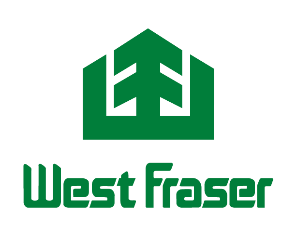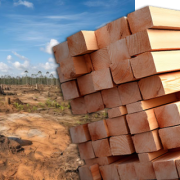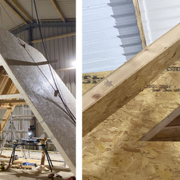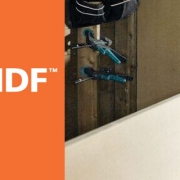SterlingOSB Zero engineers out carbon
SterlingOSB Zero, from timber panel specialist West Fraser, represents a choice of precision-engineered square edge or tongue & groove boards which are selected for applications such as flooring, roofing and offsite cassette or timber frame manufacturing; for practical and economic reasons. Additionally, although the ‘Zero’ in the name refers to there being no added formaldehyde in the formulation, it also resonates with the brand’s potential to help combat global warming.
Interestingly, although formaldehyde is not itself a major greenhouse gas, it can indirectly contribute to climate change by reacting in the atmosphere to form compounds that have climate-related effects; as well as having a detrimental effect on the health of building occupants. Yet, the environmental benefits to SterlingOSB Zero are much broader.
While its burgeoning popularity can be attributed to an array of technical benefits, in these days of heightened environmental awareness and the push to achieve Net Zero, SterlingOSB Zero can also assist the construction industry to cut carbon emissions. The board is primarily manufactured from a natural product which in itself locks in CO2 from the atmosphere, with round wood sourced as sawmill residues and co-products in the form of peeled chips. The traditional alternative, plywood, requires the peeling of much larger tree trunks taking longer to grow.
West Fraser, furthermore, ensures that all of its wood fibre is sourced from responsibly managed forests via stringent due diligence assessment, carrying chain of custody meaning stocks are conserved by replanting and carefully planned cropping. West Fraser is also investing heavily in a new rail head for its Inverness plant and buys only renewable electricity for the site and has switched from gas power to biomass for its drying process. Across the group, ESG commitments are being delivered, and Inverness is on course to attain its 2030 targets next year.
After leaving the factory gates, because SterlingOSB Zero is precision-made, there is less waste on building sites or in MMC fabrication, and the associated costs of disposal to landfill are significantly mitigated. Contractors also report lower waste in handling because SterlingOSB Zero is more resilient to damage than rival products and is much easier to align when used for tasks like sheathing or laying floors. The accuracy of manufacture is especially good for producing SIPs panels with no need to “size” boards in the factory or suffer misalignment during installation.
David Connacher, Marketing Manager at West Fraser, concludes:
“Environmentally, we are delivering on many fronts; not only helping to lock carbon into well-engineered, low-maintenance, high-efficiency sustainable panel products like SterlingOSB Zero, but we are doing so in a way which is supporting forestry and wider ecological efforts. Across Europe, the company’s target is to become carbon negative by 2030. It is currently on track to have achieved a 56% reduction by 2025 against a 2019 baseline. A major contributor to this has been to construct the new Inverness plant without fossil fuel sources; instead burning biomass and switching to electric fork-lift trucks along with other changes.”
All West Fraser panel products produced in the UK are net carbon negative and manufactured in mills that have obtained the coveted environmental ISO 14001 certification. Responsibly sourced, the panels are FSC® certified (C012533) and created from locally grown timber, cutting embodied carbon from transportation.
CLICK HERE FOR THE WEST FRASER WEBSITE
or call 01786 812 921 for further information















Leave a Reply
Want to join the discussion?Feel free to contribute!